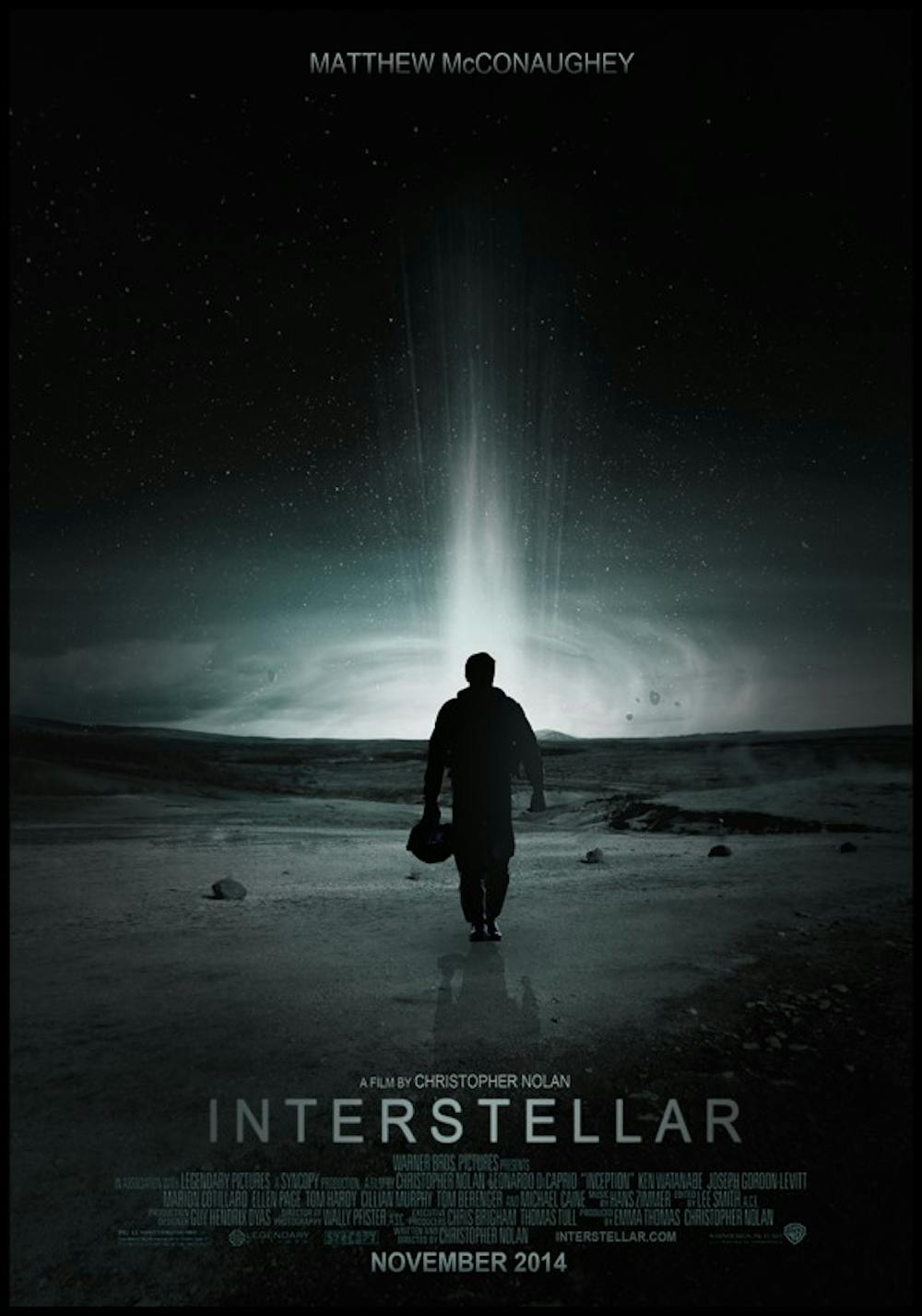By David Seaman | Echo
In an early scene from Christopher Nolan's latest brain puzzler "Interstellar," Matthew McConaughey's character laments the loss of space curiosity.
"We used to look up at the sky and wonder at our place in the stars," he reflects. "Now, we just look down and worry about our place in the dirt."
Part call for space travel, part examination of love in an age of science and part awe-inspiring epic, "Interstellar" is a trippy, mind-bending, far-out mess. It's crazy in its ambitions and as nutty as it is stimulating. But in this chaos of overreaching ideas and theories is a solid, thoughtful film that teaches us to reach for the stars. It is the cold vastness of space that we find our most human and earthly truths.
Sometime in the Earth's future, a severe crop blight and growing dust bowl have rendered the planet almost uninhabitable. The governments of Earth are convinced that the world can eventually be saved. But the true answer, it seems, lies in the stars.
"We're not meant to save the world," says Professor Brand (Michael Caine), an elderly NASA physicist. "We're meant to leave it."
With a strategy to save mankind by transporting Earth's population through a recent wormhole, Brand readies to send his best pilot, Cooper (McConaughey), into space. Surrounded by a team of researchers and robot assistants, Cooper must leave behind his children and confront the dangers of interstellar travel in order to find a new home for humankind.
Nolan just doesn't present the stars but immerses the audience in them. Nolan filmed with 70mm IMAX cameras, which reveal the majesty of space on the big screen. Visual, computer-animated effects mesh well with more practical effects, particularly incredible models used to create the spacecraft used in the film. Effects seamlessly invent the creative, artificially intelligent robots TARS and CASE, allowing for comic relief. The result overall is a place where old ideas lead to new possibilities, a space that feels real, grainy and unpolished--an imperfect universe.
This is a serious film: people die, dreams fade and the fate of humanity is always on the minds of the space travelers. The emphasis on all of this means the stakes are high, increasing the intensity. A nerve-wracking docking scene and visit to a liquid planet keep the viewer on edge and are meant to be experienced in theaters for full effect.
But the greatest effect here is not the wormhole, icy, watery planets or robot helpers. In a universe full of gaseous stars it's the human ones that stand out. Extremely talented actors such as McConaughey, Caine, Anne Hathaway, Casey Affleck and a surprise guest bring their best to the production.
McConaughey in particular gives one of the best performances of his career, the apex of his revival as a serious actor. Watch the scene where he listens to his children's messages after a few years in space. The emotional reaction of Cooper is sudden and heartbreaking, and it lands and earns a simple, honest impact.
But in place of the simple much of the time Nolan strives for the complex. The director desperately wants this film to be the next "2001: A Space Odyssey" but forgets that film didn't lecture to the audience about its intentions. "2001" let its grandiose themes speak for themselves through subtlety and visuals, not dialogue, which is where "Interstellar" struggles. Hathaway's character introduces a line of exposition that, while a part of the underlying theme of the film, feels jarring and unnecessary wordy. Subtlety is not the strong suit of "Interstellar," and the dialogue suffers because of it.
The characters don't talk naturally about their experience; more often than not, they seem to be trying to explain things to a confused audience. The themes aren't the problems here: they are pretty common ones, such as love and courage. The problem is that the themes are wrapped up in an overly analytical film.
The pure awe and visuality of "Interstellar" drives the story and makes it a very entertaining film. But the jargon-laden expository dialogue and ideas wrapped in space jargon desperately trying to be spelled out to the audience left me a bit cold.
Still, Nolan should be commended for his ambition, even if the execution is a bit muddled. You can't deny the power this kind of film can have on an audience. After my showing, people lingered in the theater lobby, excitingly trying to piece together what happened and dissect the black holes, dimensions and space travel. "Interstellar" drives you to discussion, to reach for its story as well as the stars. You won't get that out of most other blockbusters.





